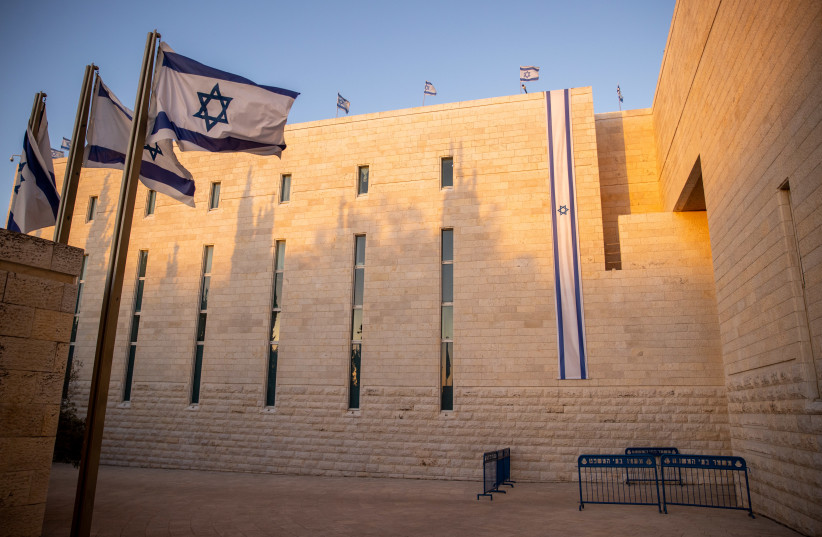The High Court of Justice on Tuesday rejected a second appeal by Palestinian hunger striker Khalil Awawdeh to be fully released from administrative detention.
"We can only hope again that the petitioner will come to his senses and stop the hunger strike," the court stated.
Awawdeh’s case has gained increasing local and international attention since he started his hunger strike on March 3.
A photograph of an emaciated-looking Awawdeh, who has now gone over 180 days without food, showing his bones jutting out from his skin, has been widely circulated on social media.
The father of four is in his early 40s and is a member of Palestinian Islamic Jihad. He initially was questioned on suspicion of incitement, was released and then arrested as an administrative detainee last December 27.
The detention, during which he was held without charges, was initially due to last six months. It was extended for another six but then shortened. He is expected to be released in October.

Due to his frail medical condition, Awawdeh has been hospitalized at Shamir Medical Center in Tzrifin, near Ramle. Earlier this month, the IDF suspended his administrative detention for the duration of his hospital stay.
Islamic Jihad had demanded Awawdeh’s release as one of its conditions for the Egyptian-brokered truce that ended Operation Breaking Dawn earlier this month, but Israel rejected that request.
Last week, the High Court rejected Awawdeh’s appeal, explaining that given the suspension of his detention during hospitalization, there was no need for legal intervention.
Ahlam Haddad, Awawdeh’s attorney had argued in her new petition that the administrative detention must be lifted altogether. If there were charges against her client that warranted jail time, then he should be given the right to defend himself in a court of law, she said.
Haddad said her client had been fasting for more than 170 days, was in poor health and consequently could pose no danger.
Neurologist Bettina Birmanns, who volunteers with Physicians for Human Rights Israel, visited Awawdeh on Friday. She said he was at risk of irreversible neurological damage and could die.
The court, which counted his hunger strike from March 13th, said that there were security reasons that prevented his release.
The court on Tuesday said that Awawdeh's physical danger was the reason his detention had been suspended. It noted that evidence against him was strong even though no indictment had been filed.
Disclosure of that data "could seriously damage the security of the state and of the source of the information," the court explained.
The Office of the European Union Representative in Jerusalem called on Israel this week to release Awawdeh, saying it was “shocked by the horrible pictures” of his emaciated body and that “unless charged immediately, he has to be released!”
The Israeli left-wing NGO HaMoked said Israel now holds 671 Palestinian administrative detainees.
HaMoked executive director Jessica Montell said. “The number of administrative detainees has increased dramatically over the past few months. This is outrageous. These detainees should be given a fair trial or released immediately. This sweeping use of administrative detention is unacceptable.”
